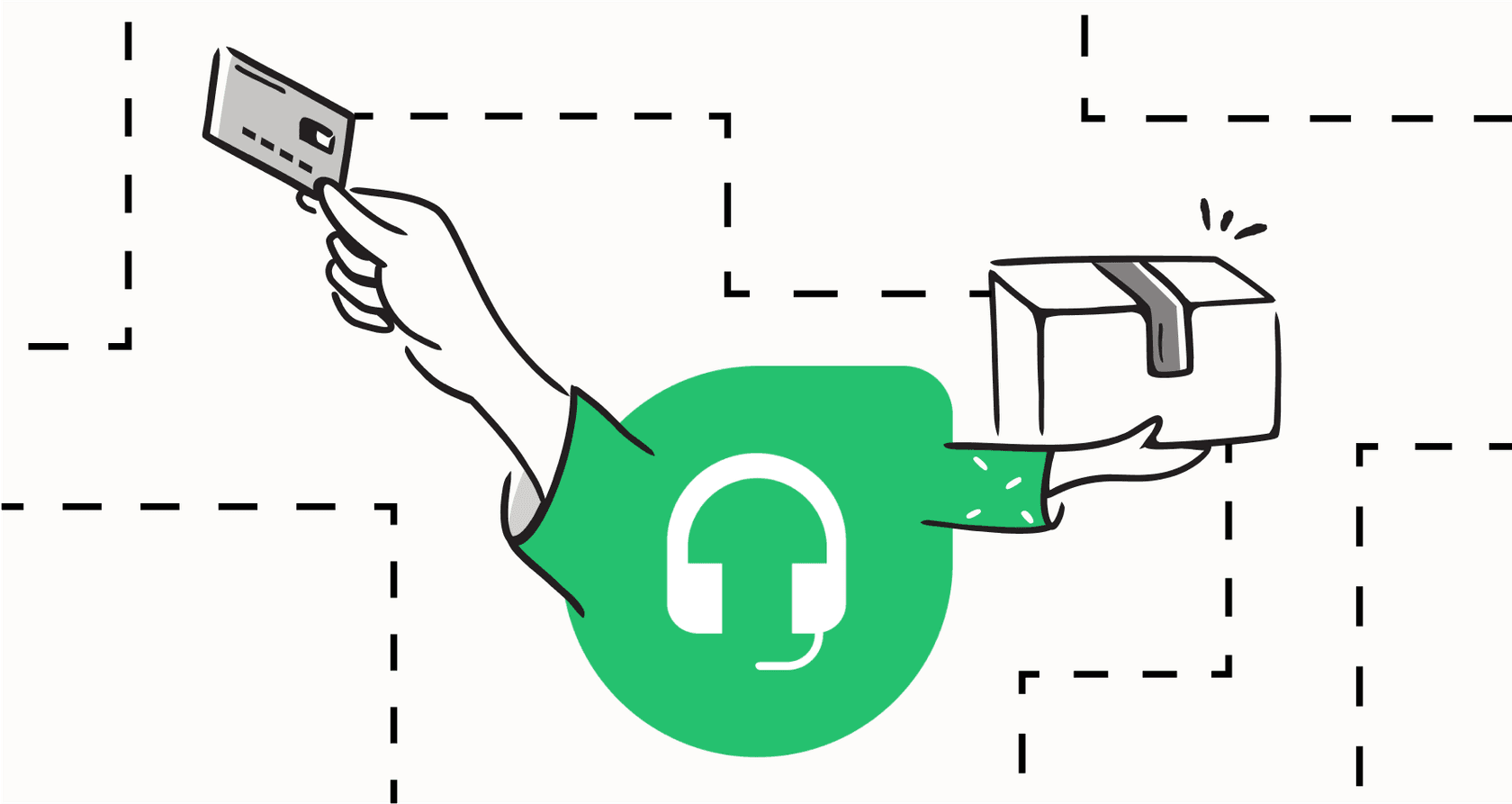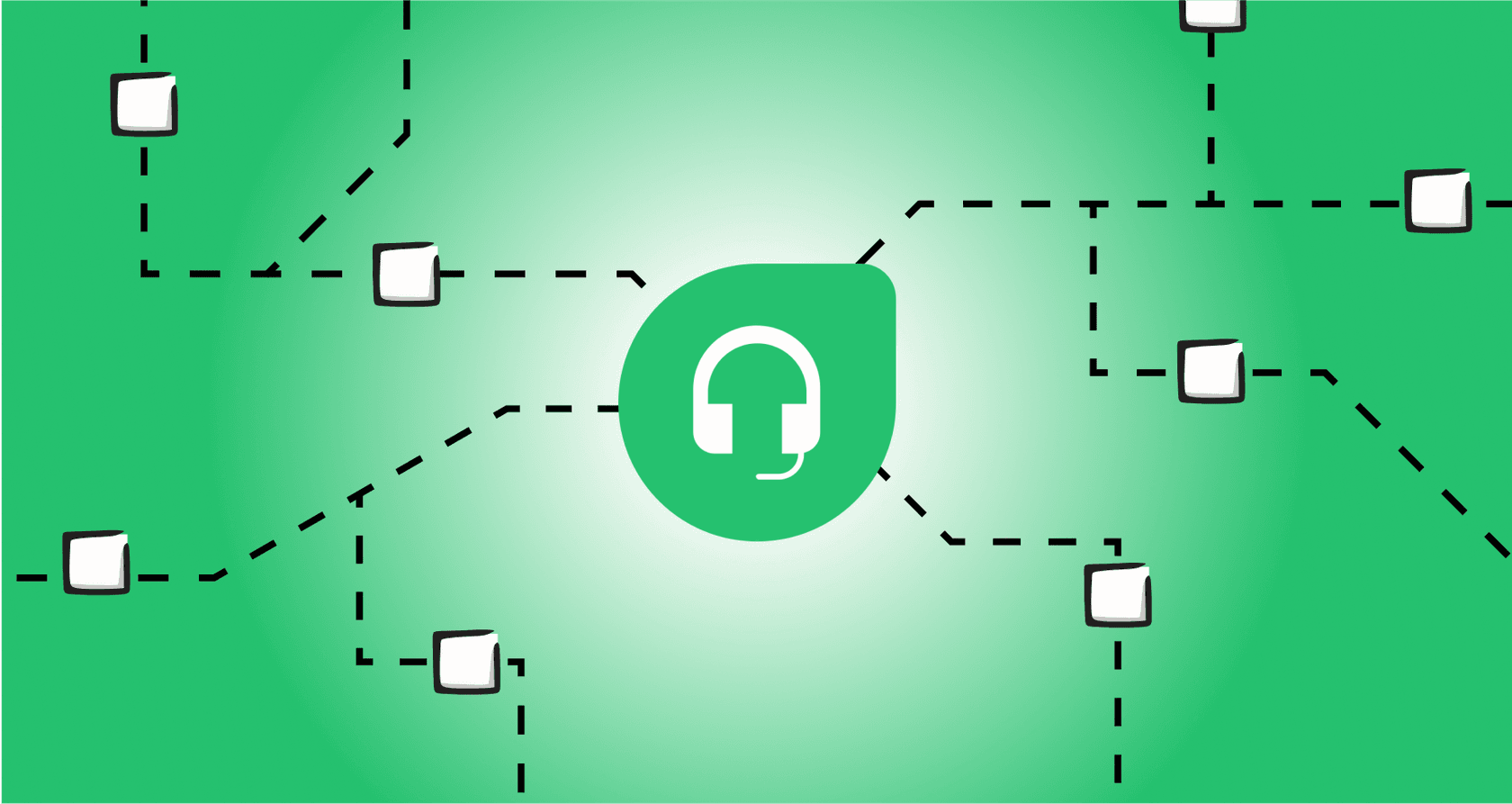A complete overview of Freshdesk in 2026: Features, AI, and pricing

Stevia Putri

Katelin Teen
Last edited January 16, 2026
Expert Verified

If you're on the hunt for customer service software, you’ve probably stumbled across Freshdesk. It’s a huge name in the helpdesk space, and thousands of businesses use it to keep their customer conversations in order.
The software world moves fast, and pricing models are offering more flexibility than ever. It's no surprise that many teams are looking for the best ways to optimize the tools they use. This guide is a clear overview of what Freshdesk looks like in 2026. We'll walk through its core features, check out its built-in AI engine, Freddy AI, and look at its scalable pricing structure. The idea is to give you a clear picture so you can decide if it’s the right fit for your team's goals.
What is Freshdesk?
At its heart, Freshdesk is a cloud-based customer service tool from Freshworks. Its main purpose is to help businesses of all sizes manage their customer support from one central place.
Think of it as a reliable mission control for your support team. It pulls in questions from all the different places your customers hang out, email, phone, live chat, social media, and organizes them into tickets your team can work on. It also has features for building a self-service knowledge base, automating common tasks, and keeping an eye on your team's performance. It’s designed to be a comprehensive shop for your support operations.
Breaking down the core features of Freshdesk
Freshdesk has a lot going on, but most of its features fall into three main buckets that support teams use every single day. Let's take a look at what they are and how they actually work.
The Freshdesk omnichannel ticketing system
Freshdesk's biggest strength is its ability to bring all your customer questions into one place. It doesn't matter if a customer sends an email, tweets at your company, or opens a live chat: the conversation lands in a single, shared inbox.

This is a great advantage for agents who want to stay focused without switching between different apps. It helps you give customers a consistent experience and makes it easy to track an issue from the first message to the final resolution. While Freshdesk is excellent at organizing these tickets, teams can further enhance their efficiency by using complementary AI tools to bring in knowledge that might live in other systems like Confluence or Google Docs.
Freshdesk automation and workflows
When tickets start piling up, Freshdesk has some solid automation tools to keep things moving. You can create rules that automatically send tickets to the right person based on their expertise or availability. For instance, any ticket mentioning a "refund" can go straight to your billing team.
Workflows can also take care of repetitive steps, like sending an automatic "we received your message" email or prioritizing a ticket that needs a quick response. These features are great for making your team more efficient and are designed to work seamlessly within the Freshdesk platform.
Freshdesk reporting and analytics
Freshdesk gives you a bunch of reporting tools to track how your team is doing. You can watch important numbers like how long it takes to first respond, how many tickets you're closing, and what your customer satisfaction (CSAT) scores look like.

This info is gold for managers who need to find areas for improvement and coaching moments for their team. The reports are excellent for showing you what happened. For even deeper insight, a complementary AI solution like eesel AI can analyze the content of your tickets to help identify further opportunities for automation and knowledge base updates.
A deep dive into Freshdesk AI (Freddy AI)
Freshdesk comes with its own AI engine called Freddy AI. It’s built to handle simple questions automatically and give your human agents a hand. It is a mature tool that offers several core benefits for teams looking to integrate AI directly into their helpdesk.
What Freddy AI offers in Freshdesk
Freddy focuses on a few key areas to make support teams work more smoothly:
-
AI Agents: These are chatbots you can use on email or chat to give instant answers to common questions like "Where's my package?" or "How do I change my password?"
-
AI-powered assistance: For your human agents, Freddy works like a co-pilot. It can suggest articles from your knowledge base, help write replies, and summarize ticket histories.
-
Insights: Freddy can also look at trends in your tickets to help managers stay ahead of growing support themes.

Having an AI built right into your helpdesk is convenient. If your team wants an integrated experience and primarily uses data within the Freshworks system, it is a great place to start.
Maximizing the Freshdesk AI ecosystem
Freddy AI is designed to be a secure, focused tool that works primarily with information inside the Freshworks world, such as your Freshdesk tickets and knowledge base.
For many companies, knowledge is spread across various platforms, like technical guides in Confluence, internal policies in Notion, or tips shared in Slack. While Freddy is optimized for internal data, teams can easily expand their reach by using a tool like eesel AI alongside it. eesel AI connects all your knowledge sources - including internal wikis and shared documents - to provide a complete knowledge layer that works perfectly with your Freshdesk setup.
Launching AI with confidence in Freshdesk
Deploying AI is an exciting step, and ensuring it's ready for your customers is key. Freshdesk provides a stable platform for these tools.
To add an extra layer of certainty, teams can use eesel AI's powerful simulation mode to test their AI setup on thousands of past tickets before going live. This allows you to forecast how it will perform and see where you might want to add more knowledge. It’s a great way to launch your AI strategy with full confidence while continuing to use Freshdesk as your core platform.
Understanding Freshdesk pricing and plans
Freshdesk offers tiered options to match different team sizes and needs. Here's a clear breakdown of the Freshdesk pricing plans so you can see how they scale.
Freshdesk pricing plans
Freshdesk has several plans, charging per agent, per month. Here’s how the main plans compare if you pay for a full year upfront.
| Feature | Growth | Pro | Enterprise |
|---|---|---|---|
| Price (billed annually) | $15/agent/month | $49/agent/month | $79/agent/month |
| Core Features | Ticketing, Customer Portal, Basic Reports | Everything in Growth + Custom Portals, Advanced Ticketing | Everything in Pro + Audit Logs, Skill-based Routing |
| Freddy AI Agent (Email/Chat) | Not Included | 500 sessions included, then $100/1,000 sessions | 500 sessions included, then $100/1,000 sessions |
| Freddy AI Copilot (Agent Assist) | Not Included | Add-on: $29/agent/month | Add-on: $29/agent/month |
Understanding Freshdesk's scalable pricing
The pricing is designed to grow with your team. Here are a few things to keep in mind as you plan:
-
Scalability: As you hire more agents, your plan scales with you, ensuring everyone has the tools they need.
-
Optional AI features: High-value features like the Freddy AI Copilot are available as add-ons. This allows you to customize your costs by only paying for these advanced features for the agents who need them most.
-
Flexible usage: The AI Agent includes a set number of sessions, with the option to add more as your automation volume grows. This provides a clear path for teams who want to scale their automated support.
A predictable pricing alternative
For teams looking for a different approach to budgeting, tools like eesel AI offer a pricing model based on monthly AI interactions rather than per-agent seats.
This can be a complementary way to manage costs, as it focuses on the volume of work the AI handles rather than the size of your team. All of eesel AI's main products - the AI Agent, Copilot, and AI Triage - are included, offering a simplified way to add powerful AI capabilities to your Freshdesk experience with a predictable monthly bill.
This video provides a quick overview of what Freshdesk is and how its AI-powered features can help streamline customer support operations.
Is Freshdesk the right choice for you?
Freshdesk is a powerful, well-rounded helpdesk with a mature ticketing system and excellent reporting. If your team values an all-in-one solution that works seamlessly within a trusted ecosystem, it is a fantastic choice.
The built-in AI is a reliable starting point for many, and the pricing plans offer clear tiers as you grow. For teams that want to expand their AI capabilities to include knowledge from many different external tools, adding a complementary layer is a great way to get the best of both worlds.
You don't have to change your entire workflow to get advanced AI. You can give your current setup a major upgrade with an AI layer that works with what you've already got. eesel AI connects smoothly with Freshdesk, Zendesk, and over 100 other apps to bring all your knowledge together. You can get started in minutes and use our simulation mode to see how much more you can achieve with your Freshdesk setup.
Frequently asked questions
Freshdesk is a cloud-based customer service tool designed to centralize and manage all customer interactions. It helps businesses organize support requests from various channels like email, chat, and social media into tickets for their team.
The Freshdesk omnichannel system brings all customer queries from different channels into a single, shared inbox. This allows agents to manage conversations efficiently without switching between multiple applications, ensuring a consistent customer experience.
Freddy AI works as a secure, integrated solution, primarily focusing on data within Freshdesk tickets and its own knowledge base. This ensures that the AI stays within a controlled environment, and teams who need to access external knowledge in tools like Confluence or Slack can easily use complementary integrations to bridge that gap.
Freshdesk is excellent at gathering tickets and managing internal knowledge. While its built-in Freddy AI is optimized for internal platform data, Freshdesk’s flexible ecosystem allows it to work alongside specialized tools that can pull in information from sources like Confluence or Google Docs for a more comprehensive setup.
Freshdesk offers a range of pricing plans that scale with your team's growth. High-value AI features like the Freddy AI Copilot are available as add-ons, and automated AI Agent sessions are structured to provide flexibility as your automation needs increase, allowing for a customized support strategy.
A growing company can leverage Freshdesk's robust integrated AI for immediate needs. As their knowledge base expands across diverse tools, they can enhance their Freshdesk setup with complementary AI solutions that connect to a wider range of platforms, ensuring they get the most out of their existing ecosystem.
Freshdesk provides a reliable environment for deploying AI. For teams looking for advanced pre-deployment testing, dedicated AI platforms like eesel AI offer powerful simulation modes that work alongside Freshdesk to test performance on past tickets, ensuring high confidence before going live.
Share this post

Article by
Stevia Putri
Stevia Putri is a marketing generalist at eesel AI, where she helps turn powerful AI tools into stories that resonate. She’s driven by curiosity, clarity, and the human side of technology.





